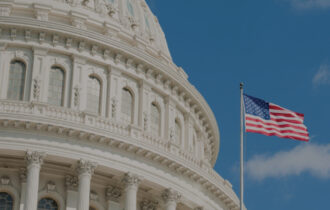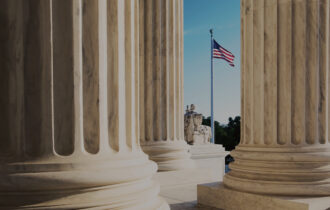The budget bill President Donald J. Trump signed into law on July 4, commonly called the “One Big Beautiful Bill Act” (OBBBA), affected a tax code provision that allows employers to take a credit for their paid family and medical leave (PFML) expenditures. In brief, the OBBBA makes the tax credit permanent and broadens its coverage to PFML insurance premiums and leave taken by newer employees than previously allowed, among other changes. The amendments apply to taxable years beginning after Dec. 31, 2025.
Background: PFML Tax Credit
The PFML tax credit was included in the 2017 Tax Cuts and Jobs Act. Prior to the amendments, it was equal to a percentage of wages paid through Dec. 31, 2025, to qualifying employees who took family and medical leave.
To be eligible for the credit, an employer must provide at least two weeks of paid family and medical leave at a payment rate that is at least 50% of an employee’s normal pay rate. The credit does not apply to PFML required by law, nor does it apply to vacation leave, personal leave or sick leave.
OBBBA Amendments
Most importantly, the OBBBA makes the PFML tax credit permanent by removing the sunset provision that would have seen the credit expire at the end of 2025.
The OBBBA amended the tax credit in other ways, including by allowing employers to take the credit for a percentage of not just wages, but also of any PFML insurance premiums they pay. As part of a growing trend, states have begun allowing insurance carriers to sell employers policies that cover the cost of PFML provided voluntarily. Moreover, the OBBBA allows the PFML tax credit for this premium expense even if none of the employer’s workers actually take PFML.
The OBBBA also provides an exception to the requirement that employers taking the credit have a written PFML policy containing specific provisions. Under the new exception, an employer with a substantial and legitimate business reason for failing to provide the required written policy may be eligible for the tax credit.
Furthermore, the tax credit was previously available only for PFML taken by employees who had worked for the employer for at least one year. Under the OBBBA amendments, the work tenure requirement is reduced to six months.
Another amendment stipulates that the PFML credit will apply only to leave taken by employees who work at least 20 hours per week.
Next Steps for Employers
Employers that provide PFML voluntarily should review the amendments to determine whether they might qualify for this potentially valuable tax credit.













